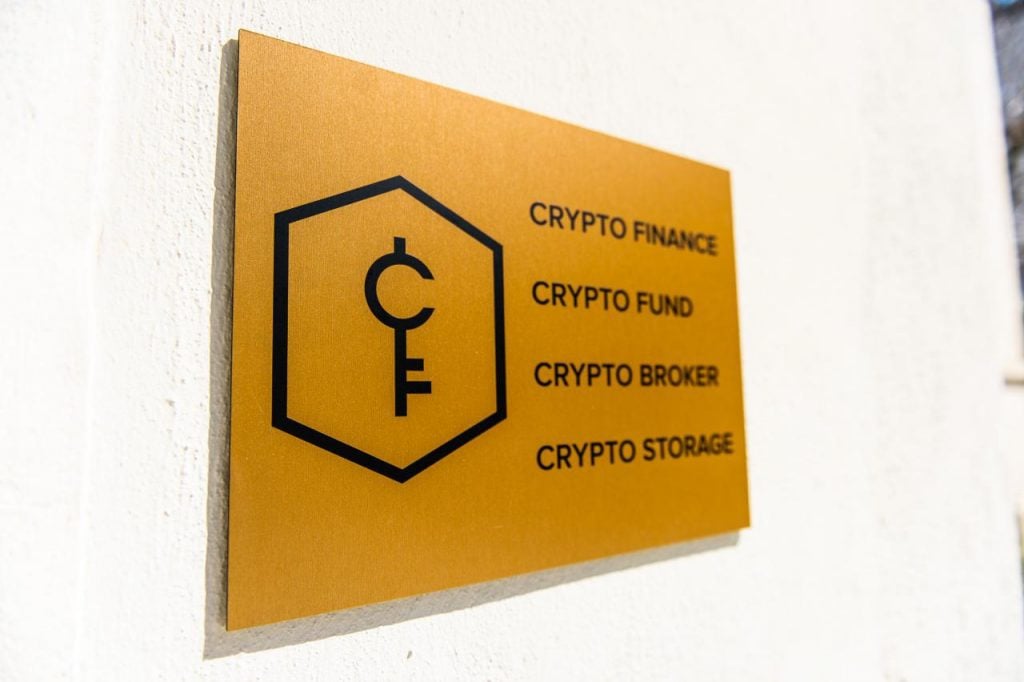Latest news about Bitcoin and all cryptocurrencies. Your daily crypto news habit.

Another Swiss private bank has announced in a statement that it’s open to on-board cryptocurrencies. Maerki Baumann private bank in Zurich is open to accepting assets that were generated with cryptocurrencies, “under the condition that strict regulatory and legal requirements are fully complied with,” Managing Director Stephan Zwahlen told news.Bitcoin.com.
Also read: Many Swiss Bankers and Financial Regulators Quit to Join the Crypto Space
“Switzerland Knows How to Protect Assets”
Assets raised from cryptocurrency transactions are usually rejected by most Swiss banks, but there are a few exceptions. Maerki Baumann has reportedly followed Falcon and officially accepted handling such assets, but it does not offer asset management solutions in cryptocurrencies nor accounts in crypto, the Managing Director of the bank told news.Bitcoin.com. Funds raised from speculative crypto transactions, payments for services rendered, or from mining successes are increasingly growing, together with the popularity of cryptocurrencies. But these assets reportedly often meet rejection from Swiss banks.
Vontobel, another Swiss private bank, together with Falcon, stands among the lenders that are agreeing to handle cryptocurrency-based investments on behalf of their clients.
The Swiss Contradiction
One of the contradictions about Switzerland which is aiming to become a “crypto nation” is that despite having hundreds of the most famous crypto companies worldwide based in Zug, hardly any of them have a Swiss bank account. The main reasons for that is the fear of black money that has tainted some of the major Swiss banks throughout history, Marc Bernegger, a Swiss Fintech and crypto entrepreneur, told news.Bitcoin.com in an interview in Zurich.
Bernegger has been a fintech entrepreneur for close to 20 years, and said he read Satoshi’s whitepaper in 2012. He then immediately felt that Bitcoin had a lot of potential. “I understood from day one the impact that the technology was going to have. Back in the old days, hardly anybody in the traditional financial services industry was even hearing about Bitcoin,” he said.
 Marc Bernegger, Board Member at Crypto Finance AG
Marc Bernegger, Board Member at Crypto Finance AG
“Nowadays, when it comes to cryptocurrencies, there is an understanding of financial services that reminds [me of] the old banking privacy,” Bernegger said. “It isn’t about replicating that again, but I think Switzerland has a strong reputation and knowledge about protecting assets.”
However, the Swiss entrepreneur noted that one of the issues in Switzerland is that, officially, there are hardly any banks doing crypto. “Everyone goes to Bank Frick, a tiny bank in Liechtenstein, one hour away from Zurich,” Bernegger explained, but this is slowly changing, he observed. Bernegger, who is also a board member at Crypto Finance Group, is part of a task force led by Switzerland’s Finance Minister, Ueli Maurer, and Economy and Education Minister, Johann Schneider-Ammann, including federal and local officials, as well as members of various startups and legal representatives. “The initiative is aiming to create a more crypto friendly environment for companies,” Bernegger explained, “the names of the banks [involved] are not public but there are a few major [Swiss] banks and several other Swiss banks which will soon on-board crypto clients,” he revealed. “I personally think that six months from now, it will be quite common to open accounts as a corporate client doing crypto business in Switzerland.”
Finance Minister Invites Banking Association and National Bank to Discuss
“Federal Councillor Ueli Maurer recently took the initiative to invite the Swiss Banking Association (SBA), the Swiss National Bank (SNB), and the Finma Banking Supervisory Authority for a round table to discuss the issue of the banking accounts of crypto companies. As a result of this round table, SBA has formed a working group to tackle the issue and is in the lead,” Peter Minder, the head of communication of the Swiss Federal Department of Finance, told news.Bitcoin.com in an email.
Swissquote Group, the Swiss online bank, reported a profit of 25.7 million CHF (~$26.1million USD) from the first half of this year, which represents an increase of 44 percent over the same period of the previous year since it started accepting crypto, news.Bitcoin.com reported earlier this month. From a turnover perspective, Swissquote is reportedly one of the Swiss companies with the highest revenue out of all crypto businesses in Switzerland.
Hypothekarbank Lenzburg, a Swiss legacy bank, also opened the door to crypto and blockchain firms in June of this year. Its CEO Marianne Wildi, who trained as a computer programmer, argued that Switzerland should adopt a crypto Swiss franc. The bank also evaluated potential compliance risks before deciding to open up to blockchain and crypto firms, and also informed Finma of its decision.
Swiss Crypto Companies Target Banking Licenses
Swiss crypto companies are also actively trying to acquire banking licenses with Finma, the nation’s financial market supervisory authority, and may soon operate just like banks. It’s a matter of time, some say.
The main problem for Finma is that many of the cryptocurrency tokens are considered securities, and in order to handle securities as a broker in Switzerland, a company needs to get a broker’s licence, which seemingly no one in Switzerland within the crypto industry has at this stage. “Finma differentiates payment tokens, utility tokens, and asset-backed tokens. The payment and utility tokens aren’t considered securities,” Yassine Ben Hamida, a former Swiss banker now fully involved in crypto projects, told news.Bitcoin.com during a phone interview in Switzerland. “The problem is that you need to have a broker/dealer’s license in order to handle the tokens that are considered securities,” he confirmed.
Crypto Broker, which belongs to Crypto Finance AG is in the process of obtaining a security dealer’s license from Finma, its CEO confirmed to news.Bitcoin.com in an email. Crypto Fund, an asset manager also part of Crypto Finance AG, is the first company in Switzerland which is able to distribute foreign funds to “qualified investors” or so-called high net worth individuals. But they aren’t the only ones, sources involved in the Swiss crypto world say, for there are allegedly many Swiss independent companies that have launched certificates in order to invest in crypto. “This is one of our first milestones, because we are now ultimately moving to become a fully licensed Asset Manager and Broker. Crypto Finance Group is aiming at becoming the most advanced and secure investment and technology provider globally,” Mark Bernegger, who also serves as a board member at Crypto Finance Group, told news.Bitcoin.com in a statement.
Custody: How Crypto Assets Can Be Kept in Banks
Mainstream media recently reported that Goldman Sachs is considering a plan to offer custody for crypto funds, without citing any solid source. Japan’s Nomura, Bank of New York Mellon, JP Morgan Chase, and Northern Trust are all reportedly thought to be working on or exploring custody offerings. In Switzerland, there aren’t any banks at the moment offering deposit services of those securities. However, this is a market that will develop quickly, according to a former UBS executive and also a former Julius Baer executive in Switzerland.
Gazprombank Switzerland Ltd., a state-owned Russian bank, and third largest in the country by assets, is also looking into cryptocurrency asset custody service and working with auditors and with Finma, according to sources close to the matter. However, the bank couldn’t make any official statement on the topic at this stage, a spokeswoman told news.Bitcoin.com.
What do you think of Swiss crypto companies aiming to operate just like banks? Let us know in the comments section below.
Images courtesy of Shutterstock, Crypto Finance Group and Business Insider.
Need to calculate your bitcoin holdings? Check our tools section.
Disclaimer
The views and opinions expressed in this article are solely those of the authors and do not reflect the views of Bitcoin Insider. Every investment and trading move involves risk - this is especially true for cryptocurrencies given their volatility. We strongly advise our readers to conduct their own research when making a decision.
